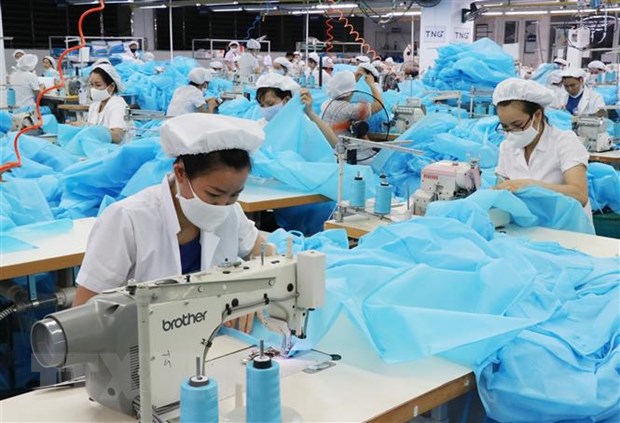Two-way trade turnover between Vietnam and 32 French-speaking countries throughout Africa during the 2015 to 2019 period increased from USD2.7 billion in 2015 to USD4.5 billion last year, making up 88% of the total trade turnover with Africa, VOV News quoted the statistics of the General Department of Vietnam Customs.

Photo for illustration
Rice is a major Vietnamese staple shipped to these markets. The export value of rice has risen steadily in recent years, reaching USD589.4 million last year and making up 14.9% of the market share of rice imports of Francophone countries in Africa.
The Ministry of Industry and Trade has coordinated with the representative of the International Organisation of la Francophonie in Asia-Pacific to organize a seminar on potential and prospects in developing trade and economic relations between Vietnam and French-speaking countries in Africa.
The event was attended by 100 business representatives and an additional 200 enterprises, including corporations and companies in French-speaking countries in Africa
Addressing the event, Le Hoang Oanh, director general of the Asia-Africa Market Department, emphasised that through traditional friendship and growing diplomatic ties, trade co-operation between Vietnam and French-speaking countries in Africa can develop into a bright spot for bilateral relations.
French-speaking countries in Africa represent an important provider of input materials for local manufacturing industries, such as raw cashew, cotton, copper, and wooden products, with import turnover of these goods accounting for roughly 80% to 90% of total Vietnamese import value from French-speaking countries in Africa.
During the seminar, representatives of African organisations and businesses highlighted the country’s role in Southeast Asia, and expressed their desires to further strengthen bilateral economic and trade ties between both sides.
Many chose to use the platform to laud the great efforts made by the Vietnamese Government in containing the COVID-19 epidemic, maintaining social welfare and restoring the economy in the post-epidemic period. Participants noted the close attention made to market access, product needs, payment methods, and risk avoidance experiences during the course of business co-operation between the two sides./.
BTA